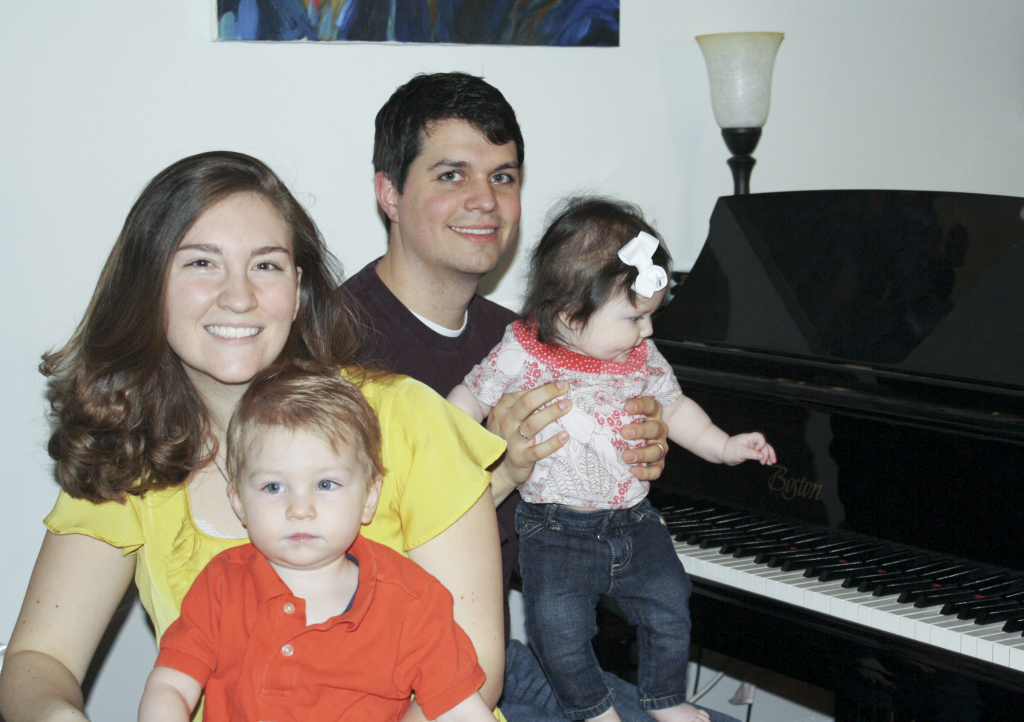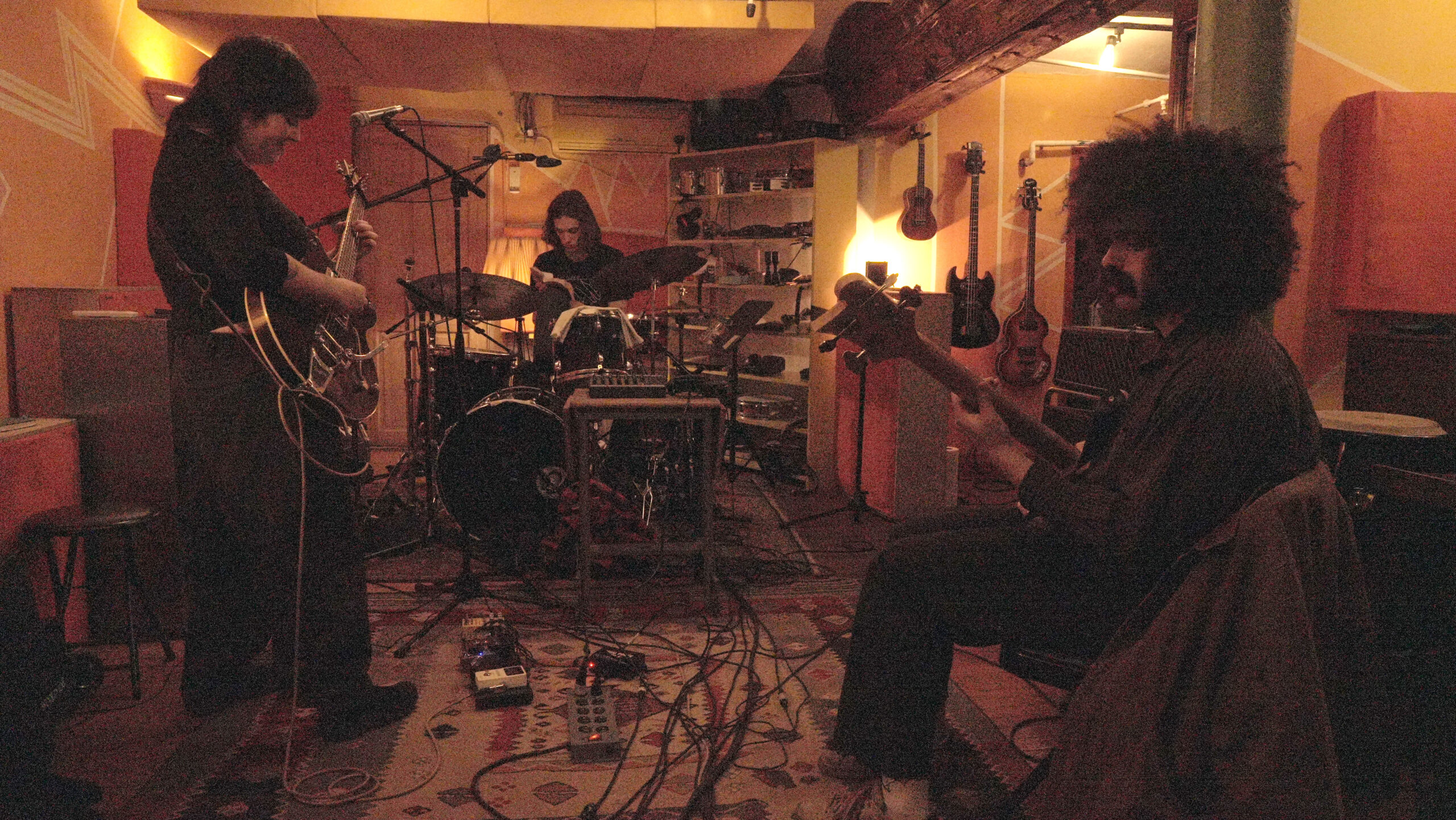Most millennials are postponing marriage.
Meet the ones who aren’t.
For some, the road to marriage is a series of trials, tests to determine if a couple is really made for one another.

For Shea Carmen Swan, however, a Lang freshman from Philadelphia, it was “love at first lap dance.” Swan was introduced to Marissa Svenonius by a friend one summer evening at a hookah bar in Middletown, a small city in upstate New York. Both women are 19 and have been engaged for four months. Swan and Svenonius wear diamond and sterling silver rings, purchased for 70 percent off at JCPenney. This summer they plan to solidify their union in a pagan hand casting ritual; their hands will be bound together with red rope to show their unity.
“We didn’t want to wait at all,” said Swan. “I know I’m going to spend the rest of my life with her, so why do I have to wait?”
Most undergraduates, though, would do just that: wait. According to the National Center of Education Statistics, only 18 percent of the nation’s undergraduates are married. Swan and Svenonius are bucking the trend. For decades, fewer young Americans have been getting married, while more and more Americans are getting married at an older age.
In 1960, 59 percent of all Americans between the ages of 18 and 29 were married, and brides and grooms were comparatively younger: the median age for women was 20.3 years old and men 22.8. By 2011, only 20 percent were married, and wed at a much later age: 26.5 years for women, and 28.7 years for men, according to the Pew Research Center, a think tank that conducts demographic studies.
“For college-educated young adults, this is a story of postponing marriage,” said Andrew J. Cerlin, author of “The Marriage-Go-Round: The State of Marriage and the Family Today,” in an interview with NPR’s Melissa Block on September 29, 2010.
According to Cherlin, many wait until after they’ve graduated and have secured jobs to get married.
Swan’s mother disapproved of the couple getting hitched so soon.
“My mom was like, ‘If you get married right now, I’m not going to pay your college tuition and you’ll be dropped from my health insurance,” said Swan.
But that didn’t dissuade Swan. Neither did distance: She lives in New York City, while Svenonius attends Orange County Community College in Middletown, New York. Swan finds the hardest part about being away from Svenonius is sleeping and waking up alone; she sprays a body pillow with her perfume so she can sleep with her smell. Swan said that her views on marriage have changed dramatically since meeting her fiance.
“I believed that marriage was just a sign of ownership,” said Swan. “Then I met Marissa and was like ‘Alright, I better put my foot in my mouth.’”
Swan also said that their engagement hasn’t proved detrimental to her academic pursuits.
“If anything, it’s more motivation to work harder, to just get going and start our life together,” she said.
Once they’ve graduated from college and “everything is settled,” they want to officially get married and get an apartment in the Upper East Side or Brooklyn.
“People delay marriage because they are getting educated and establishing careers and economic independence,” said Dr. Ben Agger, director of the Center for Theory at the University of Texas, to The Christian Science Monitor on December 14, 2011.
However, one website, WhyPayTuition.com, argues that by getting married and remaining economically independent, college students can avoid the inexorable slide into student debt.
Created by Rick Conley, an air traffic controller in Texas, the website advocates marriage as a “method” to obtain free or reduced tuition. Once married, a student is classified as independent from his or her parents’ tax returns and thus will fall into the college’s low-income aid category. The site also provides, for $600, a matchmaking service for this marriage of convenience. No romance is required — the two don’t even have to live in the same state.
“The idea is to get married, remain married for the duration of your college years, then get a non-contested, no property divorce,” Conley says on his website.
As of February 14, 2011, around 50 students have registered on the website, but are not ready to get married yet, Conley told AOL Daily Finance.
*****
“Today, more than 50 percent of American adults are single,” wrote Eric Klinenberg in his book “Going Solo: The Extraordinary Rise and Surprising Appeal of Living Alone,” “and 31 million — roughly one out of every seven adults — live alone.”
J.J. Wright, a senior at The New School for Jazz, who is from Buffalo, New York, does not live alone. Twenty-six years old, Wright is a husband and a father. He plays the piano with his 6-month-old daughter on his lap, while his 19-month-old son, holding a bottle, dances happily.
J.J. and his wife Alexandra, 25, dated for 10 months before getting engaged.
“We felt called to marriage,” said Alexandra.
“It was time for us to solidify our relationship,” added J.J.
Friends and family attended their wedding, which took place in a Catholic church. J.J. wrote the music that his 12 musician friends played at the wedding.
He first attended Indiana University as a freshman before joining the Navy for four years, and in 2009 he transferred to The New School for Jazz as a sophomore. The G.I. bill helped pay for his education and their rent. As parents, the couple are still “learning on the go,” but Alexandra thinks that married life is now more exciting with kids in the picture. She cooed at Mary Francis, who sat in a baby booster seat, and her baby girl smiled back.

“Children are a great help to marriage,” she said. “They force you to be on the same team and work through issues together.”
As Peter climbs and plays on his father’s back, J.J. admitted that he does think that married life is hard work.
“You are constantly working on your relationship, and with the kids you’re always on your feet,” he said.
For J.J., his marriage and children has led him to experience academic life differently from most people.
“It’s harder to hang out with others at school because I have commitments at home,” said J.J. “Also, I have less practice time, so it helps me to use time more efficiently.”
Soon to graduate, J.J. has been auditioning for graduate programs — but being a father, he said, has prepared him in an unexpected way.
“After you witness the birth of a child, auditions don’t seem as big of a deal as they used to be,” he joked.
Alexandra said J.J.’s experiences have helped to give him a great deal more more maturity and self-discipline, and having a family has helped give him more drive. Supportive of her husband, she is committed to doing “whatever looks best for the whole picture, for his career and his family.”
Education appears to be a factor in America’s dwindling married population. According to a 2010 Pew Research Center report titled “The Decline of Marriage And Rise of New Families,” college graduates (64 percent) are much more likely to be married than those who have never attended college (48 percent).
Neither the registrar or financial aid offices at The New School collect marital status data on students. Even though the number of married students at The New School cannot be represented by a number, the university remains willing to come to their aid. Student Health Services even offers couples and marriage counseling.
“We do couples counseling from time to time,” said Jerry Finkelstein, director of counseling services at The New School, “but I can count on my hand the number of married couples who have come in for counseling.”
Although few New School students sport wedding rings, those who do say that marriage motivates them to complete their education and better themselves.
With reporting by Danielle Maczynski & Ashley Chervinski







Leave a Reply